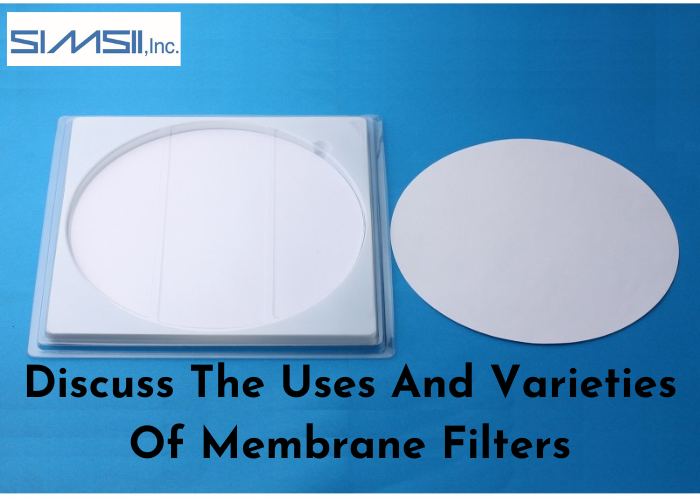
In today's scientific research, medical labs, and industrial processes, membrane filters are crucial instruments. These filters have a unique structure that allows them to separate particles based on size, making them ideal for different applications. In this article, we'll talk about the diverse applications of membrane filters, their qualities, and their advantages.
Overview Of Membrane Filters
Membrane filters consist of a thin layer of a porous material made of polymers like cellulose, nylon, or polytetrafluoroethylene (PTFE). Depending on the intended use, the membrane filter's pores can have a range of sizes. Particles larger than the pore size are confined, while smaller particles flow through the membrane as a solution circulates through it. We call this procedure sieving.
Uses Of Membrane Filters
Medical laboratories routinely use membrane filters. These filters sterilize and purify liquids, eliminating pathogens and other harmful substances. In research labs, membrane filters also function to separate certain compounds and filter samples before analysis. Membrane filters are widely used in the biotechnology sector to culture cells while keeping them isolated from the growth medium and other pollutants.
Membrane filters also work in water treatment plants; removal of impurities such as bacteria, viruses, and sediment occurs here. This process is known as microfiltration. It's an essential step in producing clean and safe drinking water. By removing sediment and other undesirable particles, membrane filters function in the food and beverage industry to clarify liquids like fruit juices, wine, and beer.
Varieties Of Membrane Filters
There are several varieties of membrane filters available, each with its unique features and benefits. The most commonly used membrane filters include nylon, cellulose acetate, and PTFE.
Nylon Membrane Filters
Nylon is one of the most functional membrane filter materials. Since they come in many pore diameters, they can be employable for many different purposes. Because they work with diverse ranges of liquids, Nylon Membrane Filter is the best alternative for users in research facilities. Moreover, they can work in high-pressure applications due to their increased level of pressure resistance.
Cellulose Acetate Membrane Filters
For industrial and scientific applications, cellulose acetate membrane filters are a reasonable choice. As a result, they are suitable for the chemical industry due to their remarkable resistance to organic solvents. While making food and beverages, cellulose acetate membrane filters may function to filter out contaminants from liquids.
PTFE Membrane Filters
Due to their strong chemical resistance, PTFE membrane filters are perfect for challenging situations. These membranes can be employable in the pharmaceutical and biotechnology sectors to filter gases and liquids. Since PTFE membrane filters have good heat resistance, they function well in high-temperature applications.
Membranes And Their Modifications
Membrane filtering includes properties such as hydrophilicity or hydrophobicity. While hydrophobic membrane filters operate to repel water, hydrophilic membrane filters draw it to them. Many applications can benefit from these alterations, which can help regulate the flow of fluids through the membrane. For your particular application, it's crucial to use the appropriate membrane filter. Pore size, filter material, and filter compatibility are all important factors to take into account. While choosing a membrane filter, it's also important to take the flow rate, pressure resistance, and chemical resistance into account.
Conclusion
Modern scientific research, medical labs, and industrial processes depend on membrane filters. They are used to isolate particular chemicals, sterilize and purify solutions, clean up liquids of impurities, and remove contaminants. Membrane filters come in different styles, each with unique characteristics and advantages. In contrast to the more expensive PTFE membrane filters and the less expensive cellulose acetate membrane filters, nylon membrane filters are more adaptable. Nylon, cellulose acetate, and PTFE membrane filters are just a few of the membrane filters that Simsii, a top supplier of laboratory filtering materials, offers. They are a great option for all of your laboratory filtration needs due to their dedication to quality and client satisfaction.


